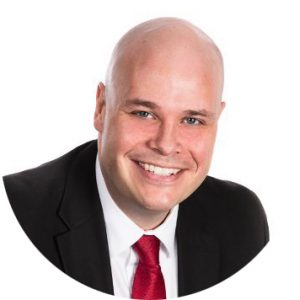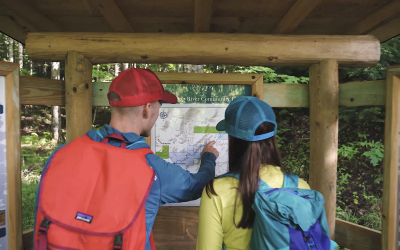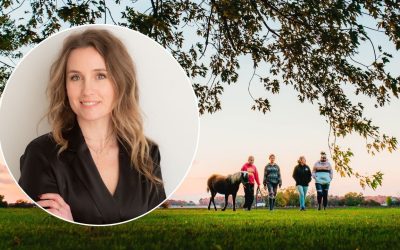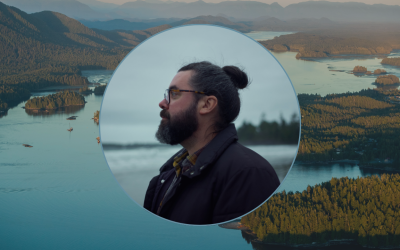When Michael Crockatt joined Ottawa Tourism as President & CEO in 2016, the city was on the verge of a big moment.
Ottawa was about to become the epicentre of Canada’s 150th anniversary celebrations in 2017. Tourism was expected to increase by 6.0% in overnight visits as a result. It was an ideal time for the destination marketing organization (DMO) to harness that momentum and claim its place as an internationally respected G7 capital city.
To do this, Ottawa Tourism needed a fresh destination marketing strategy. The DMO and its CEO saw the need to adapt to rapid changes in visitor behaviour, in digital marketing, in the workplace and in the city of Ottawa.
Evolving with the times also meant managing organizational change – always a challenging prospect.
“If we continued to operate as a traditional DMO, we would become obsolete.” – Michael Crockatt, President & CEO at Ottawa Tourism
In its quest to remain on the cutting edge, Ottawa Tourism asked Destination Think to help design a five-year destination marketing strategy in 2017, using our specialized process to engage and align tourism stakeholders.
Best of all, this strategy isn’t collecting dust. The process has also helped to channel the DMO team’s desire for change into meaningful actions that will accomplish the recommendations of the new strategy.
We sat down with Michael to ask him why the five-year strategy is so important for Ottawa, what was unique about the process and how his team has begun to turn ambition into reality.
Destination Think: What did you want to achieve with Ottawa Tourism’s new five-year strategy?

Michael Crockatt, President & CEO at Ottawa Tourism
Michael Crockatt, President & CEO at Ottawa Tourism: Early on in my time with Ottawa Tourism I became convinced that if we continued to operate as a traditional DMO, we would become obsolete because there were entities and companies and technologies that could do many of the things that DMOs have traditionally been doing, and maybe even doing them better than we can.
I kept an open mind. I didn’t know what exactly what we needed to look like at the end of the strategic planning process, but I knew we needed to go in a different direction. I wanted a little bit of validation for that, but also some guidance on how to transition a traditional DMO into a more modern, adaptable, flexible DMO. Organizationally, that was the goal.
There was also recognition (especially since the DestinationNEXT analysis) that we were at the beginning of a significant period of change for Ottawa as a destination. The way people are talking and thinking about Ottawa has changed, and we’ve seen that continue and even accelerate in 2017.
2017 has been such a special year for Ottawa, so it was the right time for us to make changes as an organization to take advantage of the opportunities that are in front of us.
What was the process like when you embarked on this project? Can you describe the collaboration with Destination Think?
I’d say it was very smooth. I’ve been on both sides of the equation, so I know it’s not always easy to blend in with an organization when you’re coming at it from the consulting side of things, but Frank Cuypers (Senior Strategic Consultant with Destination Think) was exactly the right person for us to work with. I remember the first time we met, and I came away from that knowing we were going to have a very good ally on our side to help us through this with our team and with our stakeholders.
What has happened since you released the five-year strategy?
We started doing the actions recommended in the strategic plan document – the things that your team invented. We’ve assigned someone at Ottawa Tourism to lead each one of those items. Some of them are already in place.
We’ve made some organizational changes. We can check off some of them as being accomplished, and some of them are longer term. One of the longer-term projects was to uncover Ottawa’s Place DNA®, and we are doing that together [with Destination Think] as well. Place DNA® is one of the most important pieces. To see the progress that we’ve made is fun and encouraging, and it’s going to inform a lot of our marketing and messaging in 2018.
There is more work to be done on niche markets – we know we can’t do it all at once. But we also know that we’re not going to let this sit on the shelf and tick the box to say, “yes, we did a strategic plan.” That wouldn’t help us. We’re heading in the direction we need.
You’re talking about a commitment to change and then ensuring that it happens, which is something that we don’t always see. It’s easy to pay a consultant to evolve or tweak – but meaningful change at the DMO seems to come from within, from a coalition of the willing. Despite roadblocks, it does seem that you’ve taken the recommended actions.
I agree. We did have a coalition of the willing. The entire organization has fully bought into the way we’re going.
But I also think that strategy is a reflection of our desire within our organization and our community to elevate the discussion about Ottawa so that we are in that next-level group of global destinations that people are talking about and hearing about. That is what’s exciting to us.
This means that when a DMO comes to you and asks, “Where is a DMO that’s doing it right?” your answer isn’t just Copenhagen and Austin, but it’s also Ottawa. We’re not there yet, but I think we’re getting there.
Everything is in place. Often, we see top-down or bottom-up desire to change, but one without the other doesn’t work. Where do you think your team got that desire and motivation from? Change can be scary.
In many parts of our organization, there has been a strong desire to modernize, think differently and do our marketing and sales activities differently. But the support wasn’t in place. In some cases, the people who wanted to change weren’t in positions of sufficient influence to make it happen on their own.
We were able to unleash that desire [to modernize and think differently] within the organization during the strategic planning process. We did this partly through our own actions and partly through one of Destination Think’s recommendations – to get into a flatter organizational structure, which we have done.
We’ve also tried to empower the whole team. We do a lot of listening to what the team has to say and what they are observing.
For example, we had a firmly worded dress code policy in the past. We heard that the policy wasn’t what our team wanted. So we said, “Ok, then design one.” The team designed one, and it’s very professional. Everyone has bought into it and supported it.
We’ve done the same thing with our remote working policy. We didn’t really have one before, so we handed that over to our team to make recommendations. They’ve done so, and we’re implementing the technology changes we need to facilitate it.
The workplace is changing just as rapidly as our environment is changing. I think that empowering our people and recognizing that they need a change of environment, as well as a change in direction, is a healthy thing.
What advice would you give to other CEOs of destination marketing organizations (DMOs)?
One of the benefits I had coming into this business is that I knew I wasn’t the expert in any of these areas. I’ve been involved in tourism, but only on the periphery. I’d never worked for a DMO or a pure tourism organization before joining Ottawa Tourism, so I knew there were 30+ other people in this organization who had more DMO experience than I did. I did much more listening than talking at the beginning.
Your advice and advice from others has been extremely valuable to help point us in the right direction. Coming in with no preconceived notions of what the organization should look like was helpful.
And I use the principles of open-mindedness, listening and trusting our team. I believe we have the best DMO team in the country. I trust all of them to do great things for our destination. We’re very fortunate to have the team we’ve got.
We are only at the beginning of a long process. It’s a very exciting time to live in Ottawa.
Click to read Ottawa Tourism’s five-year strategy. This interview has been condensed and edited for clarity.
Editor’s note: Our original article inaccurately implied that Ottawa Tourism is a government entity, instead of an independent, not-for-profit corporation. This has been corrected.
Destination Think helps DMOs like Ottawa Tourism and Wonderful Copenhagen with modern strategic planning that makes an impact. Contact us to learn how this process can help your destination.










0 Comments